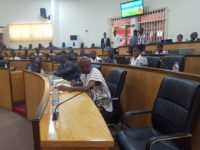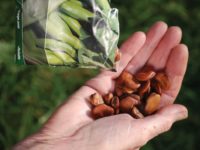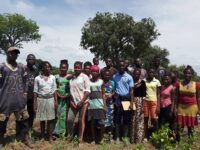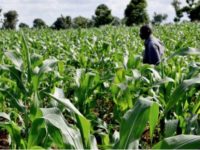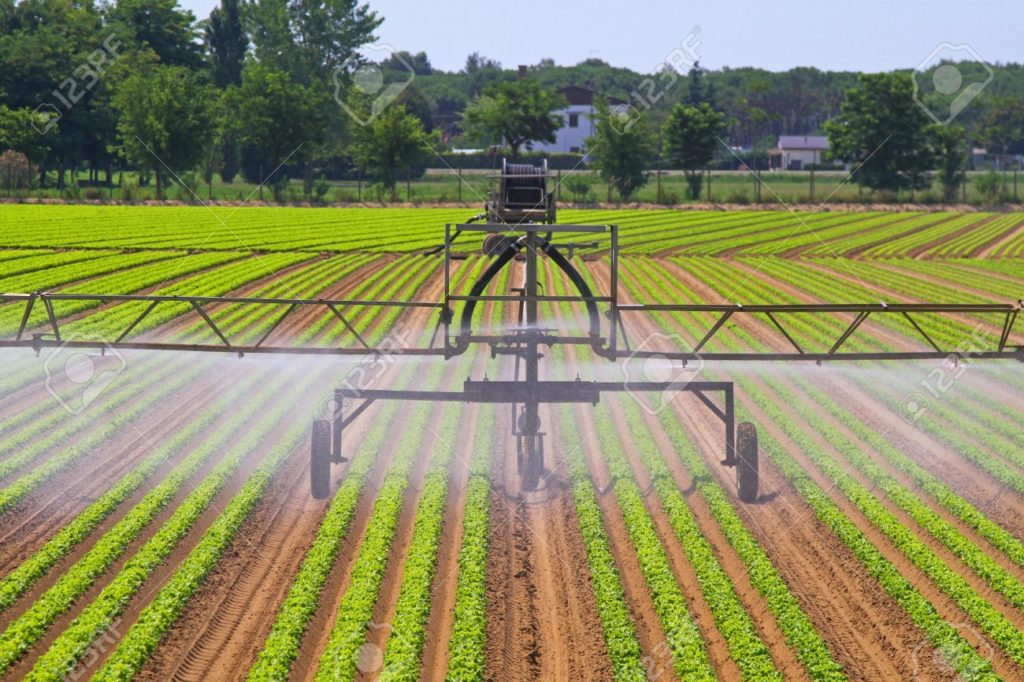
Ghana Agriculture News-Director of the Biotechnology and Nuclear Agriculture Research Institute Prof. Kenneth Ellis Danso has advocated increased investment in small scale irrigation systems as the sure way to boost agricultural production in Ghana.
He is worried climate change is negatively impacting agricultural production at a time that land area for farming activities is reducing drastically, and believes irrigation is the best way to go in this 21st century.
Prof. Danso was speaking on the sidelines of training programmes on science and innovation in farming held in Wa and Bolga for farmers, media practitioners and agric extension officers on the need for biotechnology in agriculture. The training which was organized by the Open Forum On Agriculture Biotechnology (OFAB) Ghana focused on agricultural biotechnology and safety issues.
According to Prof. Danso, Ghana has comparative advantage to export more food to the global market yet the non-existence of key agricultural infrastructure and non-application of new innovations make it impossible for farmers to supply Ghana and the rest of Africa with enough food.
He indicated that South Africa and Kenya exports a lot of agricultural produce to the European market despite their long distance from Europe, and wondered why Ghana can’t do same. Prof. Danso said these countries are able to make significant impact in the European market because there are efficient and systematic structures such as new innovations and investment in agriculture by government and Ghana must do same.
He said as a first step,it is necessary for the government and the private sector to construct small scale irrigation systems for farmers at the Municipal and District Assembly levels in order to enable farmers increase agricultural production.
“Small scale irrigation system when constructed for farmers will ensure efficient water supply for the farm and will also help farmers to produce all year round so as to prevent them from depending on the rain as a source of water supply for farming in Ghana,” he indicated.
He pointed out that agriculture accounts for about 60 % of export earnings and directly or indirectly supports 80% of the total population economically through farming, distribution of farm products and provision of other services to the agricultural sector, hence the need for it to be prioritised.
According to Prof. Danso, “there is no doubt that water is one of the most important inputs in agricultural production in Ghana apart from labour. More importantly, almost all agricultural production depends on natural rainfall and because of this situation,crop yields are invariably poor when the rains fail.”
On his part Mr. Daniel Ofosuwho is Ghana country coordinator for the Program for Biosafety Systems expressed concern over why some anti-technology civil society groups had sought to thwart the efforts by scientists to help improve agriculture through innovation. He noted efforts like anti GMO campaigns end up not only putting fear in people, but also undermine the food security efforts of the country.
Also present at the training were representatives from the Ministry of Food Agriculture,Entomologist with the Savannah Agric Research Institute Dr. Mumuni Abudulai, Dr. Richard Ampadu-Ameyawwho is National Coordinator of OFAB and Mr. Reuben Quainoo who is Executive Member of Alliance for Science Ghana.
What do you think about this piece? Share your comment in the comment thread and share the story using the social media buttons above. Thank you.
